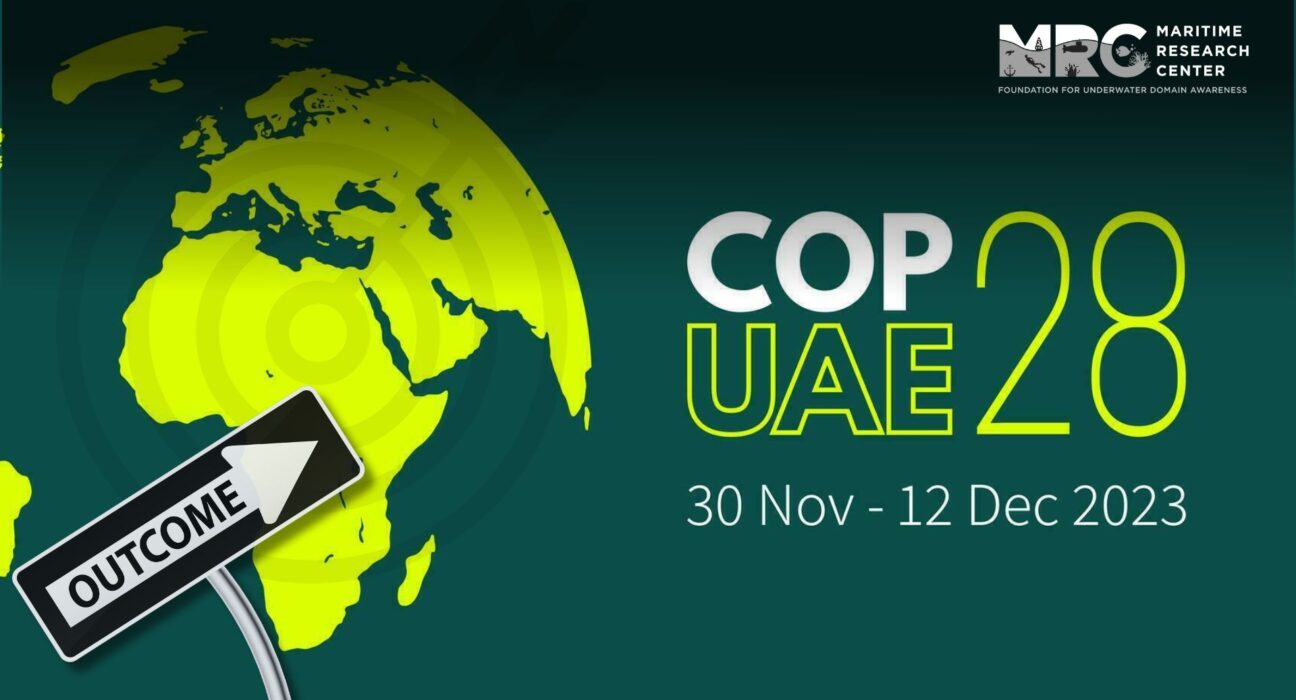- The COP28 panel at the Commonwealth Pavilion showcased global collaboration for sustainable ocean management.
- Sustainable Finance Call: Secretary-General Patricia Scotland emphasized the urgent need for innovative finance for small island developing states (SIDS) and vulnerable coastlines.
- Innovative Mechanisms: The discussion explored emerging finance tools like blue bonds, debt-for-nature swaps, and insurance products.
- Blue Economy Challenges: Overfishing, pollution, and climate risks were highlighted as challenges facing the blue economy.
- SIDS Focus: Minister Tiwau stressed the unique challenges SIDS face, calling for sustainable and innovative finance solutions.
- Mobilizing Investments: Practical strategies for mobilizing investments in climate adaptation and ocean regeneration were shared.
- Ongoing Commitment: Secretary-General Scotland reiterated the Commonwealth’s commitment, paving the way for further discussions at the Commonwealth Ocean Ministers meeting in Cyprus.
The recent high-level panel discussion convened at the Commonwealth Pavilion during COP28 in Dubai marked a significant stride towards fostering sustainable investment in the ocean. COP28 was the 28th annual United Nations (UN) climate meeting, where governments discussed how to limit and prepare for future climate change. The summit took place in Dubai, in the United Arab Emirates (UAE), from 30 November to 12 December 2023. This collaborative effort, spearheaded by the Commonwealth in partnership with the Ocean Risk and Resilience Action Alliance (ORRAA) and the UNEP Finance Initiative (UNEP FI), brought together key stakeholders and experts to delve into pressing issues and opportunities integral to the advancement of the blue economy. The blue economy is the sustainable use of ocean resources for economic growth, improved livelihoods and jobs, and ocean ecosystem health. It encompasses many activities that impact all of us, such as renewable energy, fisheries, maritime transport, tourism, climate change, and waste management. The urgency of the matter, underscored by the global significance of COP28, highlighted the critical need to address challenges and unlock potential avenues for sustainable growth.
Some of the challenges faced by the blue economy include overfishing, pollution, habitat loss, invasive species, ocean acidification, and rising sea levels. Some of the potential avenues for sustainable growth include innovative finance mechanisms, such as blue bonds, debt-for-nature swaps, insurance products, and blended finance; as well as enhancing ocean governance, cooperation, and capacity building. The panel discussion aimed to raise awareness, share best practices, and mobilise resources for the blue economy, in line with the Sustainable Development Goal (SDG) 14, which calls to conserve and sustainably use the oceans, seas and marine resources for sustainable development.
Central to the discourse was a meticulous examination of the unique challenges faced by small island developing states (SIDS), low-income countries, and regions with coastlines susceptible to climate-related risks. These challenges include high exposure to natural disasters, such as hurricanes, floods, and droughts, as well as limited resources, trade dependence, and isolation. The Commonwealth Secretary-General, Rt Hon Patricia Scotland, KC, set the tone for the discussion by articulating the formidable barriers hindering these vulnerable nations from accessing conventional funding mechanisms, such as loans, grants, and debt relief. She pointed out that many of these countries are classified as middle-income or high-income, based on their per capita income, which does not reflect their structural vulnerabilities and development needs. Her assertion that current global financial institutions are ill-suited to meet the needs of the countries that require them most resonated as a rallying cry for transformative change. She called for a new approach that would take into account the multidimensional aspects of vulnerability and resilience, and provide tailored and flexible support to the most affected countries.
Secretary-General Scotland emphasized the inadequacy of existing financial structures, citing their complexity, onerous processes, and protracted timelines as deterrents to timely and effective intervention. She pointed out that many SIDS are unable to access the funds they need from traditional sources, such as loans, grants, and debt relief, due to their income classification, lack of capacity, or high-risk perception. In asserting her commitment to ensuring that SIDS gain access to the essential financing required for climate adaptation and developmental pursuits, she underscored the imperative of exploring new and untapped streams of finance. She mentioned some examples of emerging and innovative finance mechanisms, such as blue bonds, debt-for-nature swaps, insurance products, and blended finance. She also highlighted the role of the Commonwealth in facilitating access to these mechanisms, through platforms such as the Commonwealth Blue Charter, the Commonwealth Climate Finance Access Hub, and the Commonwealth Disaster Risk Finance Portal.
This clarion call for innovative financial solutions underscored the overarching theme of the session: the need for agility and responsiveness in financial frameworks to match the urgency and magnitude of the challenges faced by vulnerable nations. She urged the international community to support SIDS in their efforts to build resilience and prosperity, and to recognise their unique vulnerabilities and potential. The blue economy is the sustainable use of ocean resources for economic growth, improved livelihoods and jobs, and ocean ecosystem health. It encompasses many activities that impact all of us, such as renewable energy, fisheries, maritime transport, tourism, climate change, and waste management.
The thematic focus on the blue economy served as a cornerstone for deliberations, reflecting the recognition that oceans play a pivotal role in the global climate system and are central to the economic prospects of many nations. The acknowledgment of the interconnectedness of economic development, climate resilience, and ocean sustainability set the stage for a comprehensive exploration of financial mechanisms available to governments. The panel discussions scrutinized a spectrum of options, ranging from traditional public and private capital to international cooperation and cutting-edge financing models. As the participants engaged in a robust exchange of ideas, the conversations transcended theoretical discussions to practical strategies for mobilizing investments. Climate adaptation, ocean regeneration, and the development of a sustainable blue economy emerged as key focal points, with participants sharing experiences and insights from initiatives already in progress. The emphasis on practical application and the exchange of best practices aimed to inspire others and foster collaboration, emphasizing that the pursuit of sustainable investment in the ocean is a collective endeavor that requires shared knowledge and concerted effort.
Hon Ribanataake Tiwau, Minister of Fisheries and Marine Resources Development, Kiribati, offered a poignant perspective on the challenges faced by small island developing states (SIDs). His remarks highlighted the incongruity between the vastness of their oceans and the limitations imposed by their small economies, exacerbated by a lack of enabling conditions such as essential connectivity infrastructure. Minister Tiwau’s call for sustainable and innovative finance resonated as a unifying theme, encapsulating the collective sentiment that overcoming these challenges necessitates a departure from conventional financing paradigms.
The COP28-Mobilizing Investments session, proved to be a pivotal gathering focused on advancing practical strategies for mobilizing investments in climate adaptation and ocean regeneration, critical components of the blue economy. The session brought together diverse perspectives from government officials, representatives of international organizations, the private sector, and civil society. Speakers shared valuable experiences and insights on overcoming barriers to financing projects that are both climate-resilient and ocean-friendly.
Furthermore, 118 countries agreed on targets to triple renewable power generation capacity to 11,000 GW and double energy efficiency within this decade. These outcomes underscore a global commitment to addressing climate challenges and fostering sustainable practices in various sectors.
Some of the potential avenues for sustainable growth include innovative finance mechanisms, such as blue bonds, debt-for-nature swaps, insurance products, and blended finance; as well as enhancing ocean governance, cooperation, and capacity building. The panel discussion aimed to raise awareness, share best practices, and mobilise resources for the blue economy, in line with the Sustainable Development Goal (SDG) 14, which calls to conserve and sustainably use the oceans, seas and marine resources for sustainable development. As the insights and commitments from this session pave the way for future deliberations, particularly at the Commonwealth Ocean Ministers meeting in Cyprus next April, there is a palpable sense of hope and momentum towards transformative action.
The collective determination to navigate the complexities of financing sustainable initiatives in the ocean reflects a shared commitment to safeguarding the future of our planet and ensuring that no nation is left behind in the pursuit of a resilient and sustainable blue economy. The blue economy has the potential to generate millions of jobs, reduce poverty, enhance food security, and mitigate climate change. However, it also requires careful management, protection, and restoration of the ocean’s natural capital and ecosystem services. By working together, the Commonwealth countries can harness the power of the blue economy to achieve their national and global goals, while respecting the rights and interests of all stakeholders.

J Cathrine
Commentary By
J Cathrine serves as the Head of Research and Publications at the Maritime Research Center, bringing a diverse academic background in water science, policy, liberal arts, and physics. Her current research focus extends across the broad field of the blue economy, climate resilience, and water management in the Brahmaputra basin. In her prior research endeavors, she has explored topics such as Indus Basin Water Management, watershed management, groundwater management, and community-led climate resilience. With a multidisciplinary approach, J Cathrine contributes to the advancement of knowledge in critical areas related to water resources, climate, and sustainable development.


